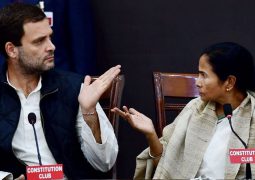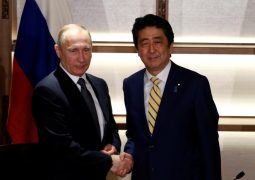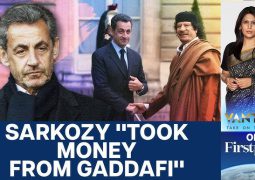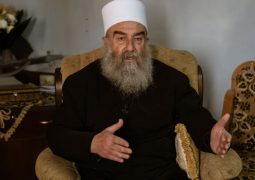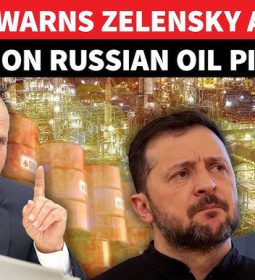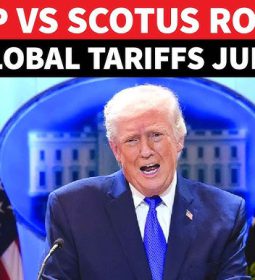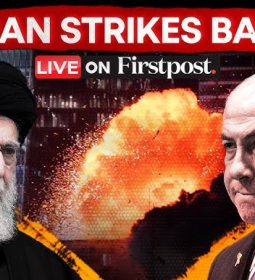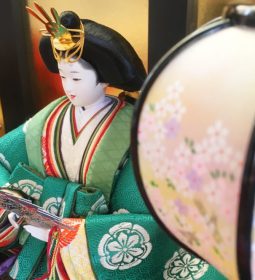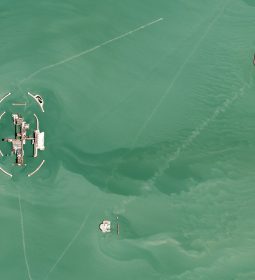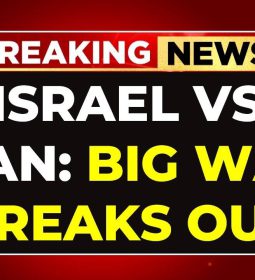Turks and Kazakhs try to cement bilateral relations

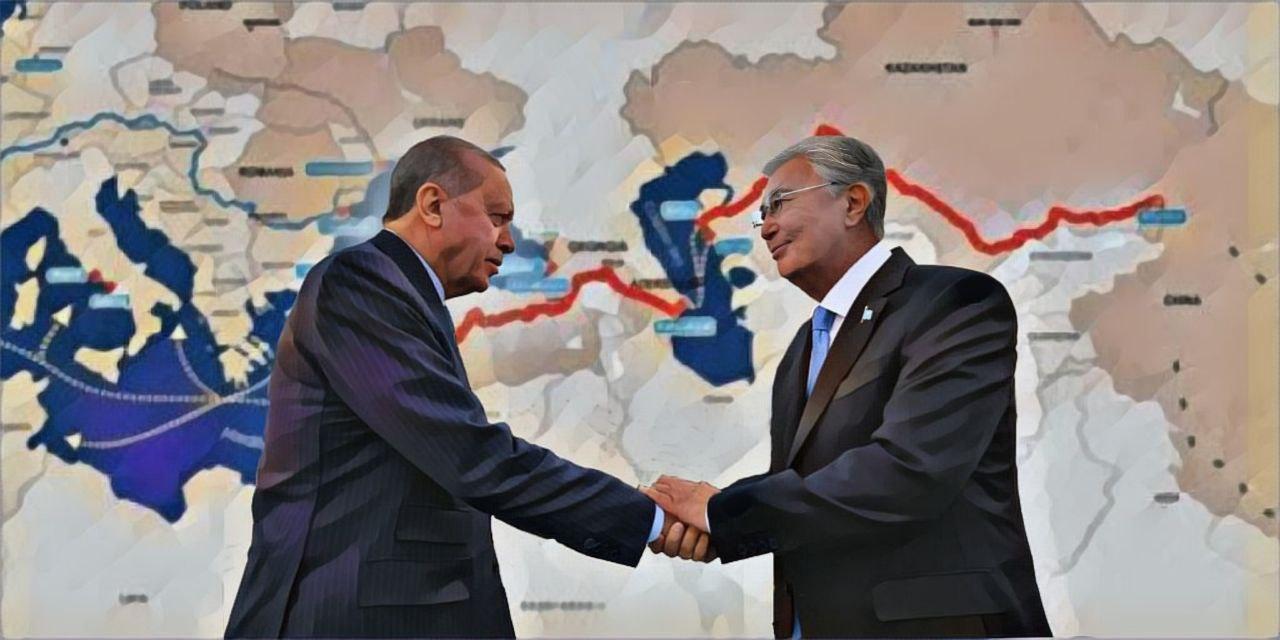
Image: TCA, Aleksandr Potolitsyn
Kazakhstan’s President Kassym-Jomart Tokayev arrived in Turkey on an official visit late on Monday, where he held talks with President Recep Tayyip Erdoğan. The two leaders went on to co-chair the fifth meeting of the Kazakhstan–Turkey High-Level Strategic Cooperation Council. Coming amid heightened tensions in the Caspian region, particularly between Russia and Azerbaijan, the trip appears aimed at recalibrating regional dynamics, though analysts say its full implications remain unclear.
Tokayev’s visit ended on a ceremonial high, as Erdoğan bestowed upon him the Devlet Nişanı, Turkey’s highest state honor. Accepting the award, Tokayev — who noted he had previously declined both domestic and foreign distinctions — thanked the Turkish president and people, highlighting Kazakhstan’s political and economic achievements. Erdoğan, in turn, praised Kazakhstan as the “center of peace and stability in its region.” Yet with Kazakhstan straddling both Central Asia and the Caspian basin — each a strategic priority for Ankara — it remains unclear which “region” Erdoğan had in mind.
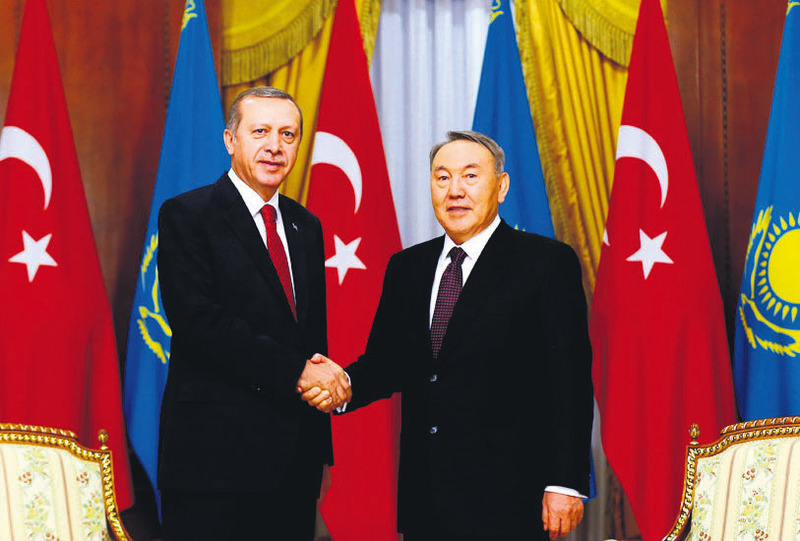
Much of the visit, however, played out behind closed doors. The official press release offered only general statements and few specifics. But the images released were polished and plentiful.
Ahead of the summit, Tokayev met with prominent Turkish business leaders already active in Kazakhstan or planning future investments in the country’s economy.
Political analyst Adil Kaukenov, a China specialist, weighed in on Tokayev’s business meetings via his Telegram channel, stating that the main topics were processing and logistics. His colleague Daniyar Ashimbayev, meanwhile, interpreted the visit as evidence that Astana is pursuing the foreign policy course it deems necessary.
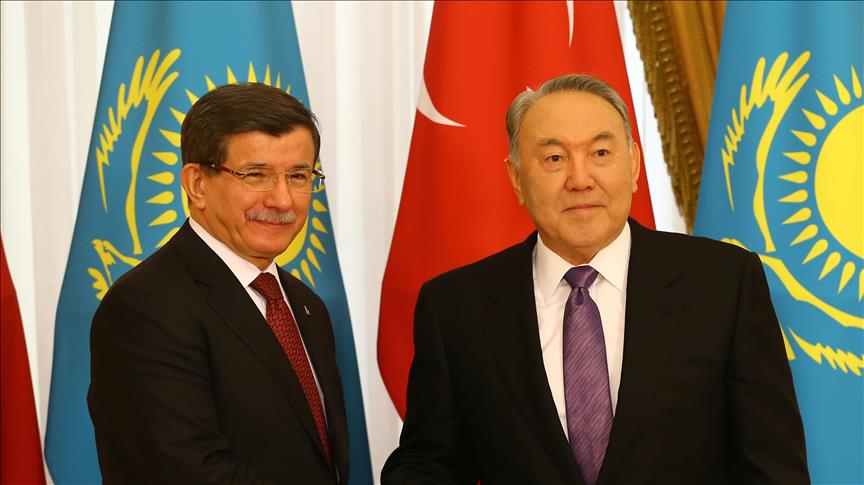
“I have already written about the logistical and geopolitical rivalry between Central Asia, the South Caucasus, and Asia Minor,” Ashimbayev observed. “A strange situation even arose when Kazakhstan signed one agreement on the Trans-Afghan Highway with Kabul, and Tashkent signed another. Or the constant discussion between Tashkent and Baku on the development of the Trans-Caspian corridor without the participation of Ashgabat and Astana. Tensions have risen in relations between Baku and Moscow, which could jeopardize Caspian logistics. Against this backdrop, the Kazakh authorities are methodically pushing through their agenda.”
Ashimbayev also recalled Kazakhstan’s recent diplomatic successes, such as securing EU sanctions exemptions for agricultural and coal exports.

“In this regard, Tokayev’s trip to Ankara was intended to resolve possible contradictions and misunderstandings in bilateral relations,” Ashimbayev concluded.
While official sources emphasized economic and cultural-humanitarian cooperation as the main themes of the visit, Ashimbayev hinted that more sensitive topics may have been discussed privately.
“The Turkish release mentions that the parties discussed defense issues, while the Kazakh release says they talked about IT,” he noted. “But by and large, the meaning of the talks is that both leaders calmly sorted out mutual issues, with no one acting as a supplicant or ‘vassal’ (as is sometimes the case at similar meetings). Kazakhstan methodically focused on the issues of interest to it and correctly discussed the issues raised by the host of the summit.”
A closer analysis of publications on Akorda, the Kazakh presidential website, offers subtle clues about the meeting’s agenda. One statement from the Strategic Cooperation Council notes that the two sides discussed “prospects for increasing exports via the Baku-Tbilisi-Ceyhan oil pipeline.” Tokayev also “invited Turkish companies to participate in projects aimed at reducing the electricity deficit,” and expressed confidence in the partnership between KazMunayGas and Turkiye Petroleum.
The BTC pipeline is often floated as an alternative to Russian export routes, though it tends to re-emerge during times of political tension as a form of leverage. Moscow remains unenthusiastic about Ankara’s growing role as a logistics hub in the region.
During a media briefing, Tokayev said: “Currently, 1.4 million tons of Kazakh oil are transported annually to Turkey via the Baku-Tbilisi-Ceyhan pipeline. We discussed increasing supply volumes and welcome Turkiye Petroleum’s intention to work in the Kazakh market. We are also interested in utilizing the investment opportunities of Turkish companies and their experience in diversifying energy sources and building power plants. We are ready to jointly implement large-scale projects.”
But even more significant was Tokayev’s public and official invitation for Turkey to increase its presence in the Caspian region.
“The development of the Trans-Caspian international transport route, known as the Middle Corridor, is of great importance. This initiative is in the interests of both countries. Kazakhstan is modernizing its railways, building highways, and upgrading infrastructure to boost shipping on the Caspian Sea. We invite Turkish investors to actively participate in these projects. Our government is ready to provide special incentives to Turkish entrepreneurs,” Tokayev stated.
The Caspian Sea, once largely dominated by Russia, requires substantial investment to increase its logistical capacity. This includes not only the BTC pipeline, which relies on barge transport from Aktau, but other east-west cargo routes such as Chinese goods en route to Europe. The limited depth of the sea restricts large vessels, reducing the economic appeal of the Middle Corridor. Turkey, with an interest in both the BTC and the broader corridor, is a logical partner.
From a geopolitical perspective, Ankara, as a NATO member, could serve as a counterweight to Russia and Iran in the region.
Viewed through that lens, Tokayev’s outreach to Erdoğan looks like a calculated and strategic move, and Erdoğan appeared to be acknowledging this by presenting Kazakhstan’s president with Turkey’s highest award.
The question now is, how will Moscow respond?
- Previous Trump tariffs hit stability of Kazakh national currency: fell 6% in one day
- Next Trump remains “committed” to denuclearization objectives: Kim says “no and never”



